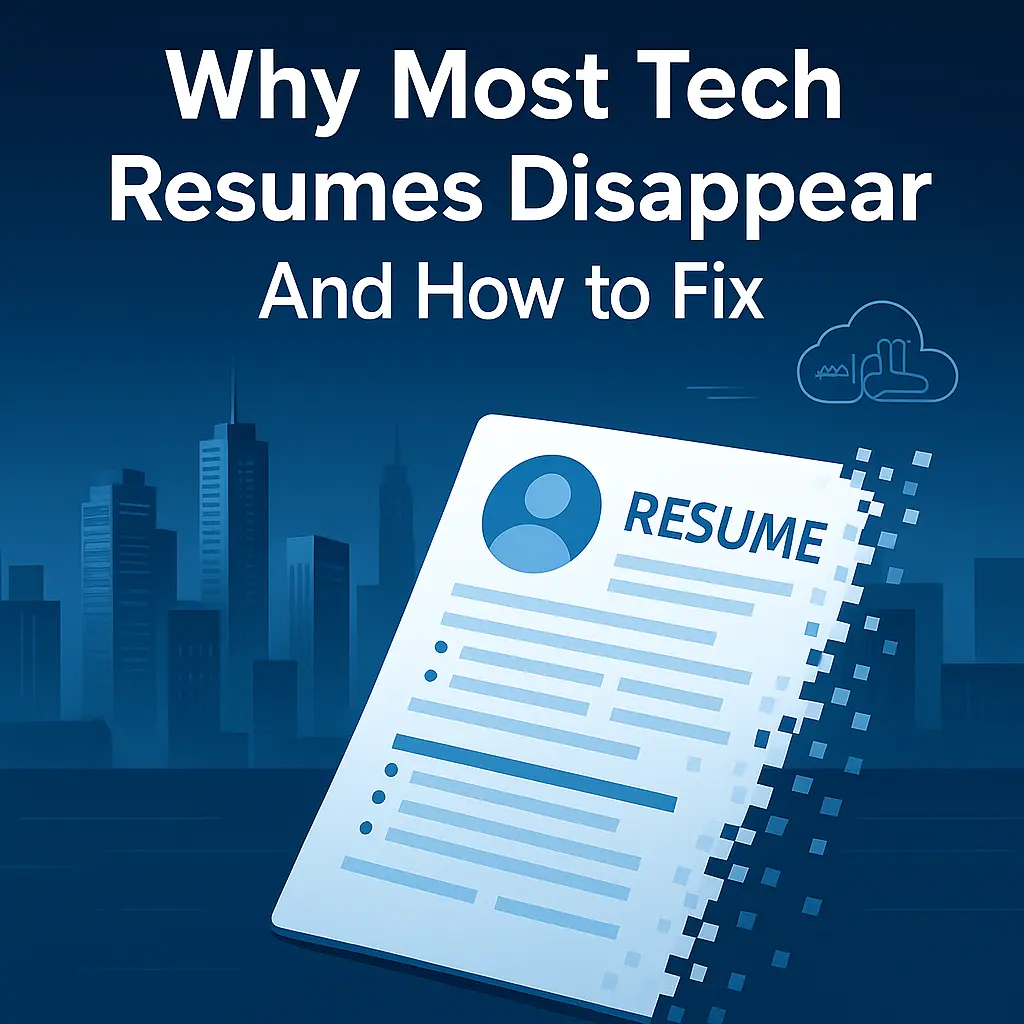Finding the right job can feel like a puzzle. One key fact is that understanding what hiring managers want can set you apart from others. This guide will show simple ways to decode job descriptions and make a great impression on those hiring managers.
Keep reading for expert tips!
Decoding Job Descriptions
To decode job descriptions, thoroughly research the company and carefully analyze the job description.
Conducting Thorough Company Research
Start your job search by looking deeply into the company you want to work for. Use LinkedIn and social media to learn about its culture, goals, and how it operates. This shows you're really interested in working there, not just getting any job.
Look at their online community too. You might find valuable insights or news that can make your application stand out.
Knowledge is power in a job search.
Also, check out the company's website and read through their recent posts or press releases. This helps you understand what they value and are working on right now. Seeing what challenges they face gives you a chance to think about how your skills can help solve those problems.
Share these ideas in your resume or during an interview to catch the recruiters' attention.
Analyzing the Job Description Carefully
Read the job description well. It holds clues about what the hiring manager values. Look for keywords like "leadership skills" or "problem-solving abilities". These words show what is important for the job.
Also, notice if they talk a lot about "company culture" or "team". This means they value how well someone fits in with others at work.
Match your experiences to these keywords. If the job asks for good management skills, think of times when you led a project or guided a team. Use these examples in your resume and during the job interview.
This way, you show that you are not just reading the job description but understanding it and seeing where you fit.
Uncovering Hiring Manager’s Needs
Uncover what hiring managers need by connecting with current or former employees and reflecting on the hiring process. Then, translate that understanding into a resume and weave it into your interview questions.
Networking With Current or Former Employees
Networking with current or former workers gives you a peek into the company's inner workings. It helps you understand what hiring managers look for.
- Start by finding these individuals on social media sites for professionals, like LinkedIn.
- Look for people who have worked in the role you're eyeing. Reach out with a friendly message.
- Attend industry gatherings where employees from your target company might go.
- These events are great spots to meet and chat with them in person.
- Join online forums or groups related to your field.
- Here, you can ask questions or share insights, making it easier to connect with others in the same industry.
- Ask about the company's culture and values during your conversations.
- This shows you're serious about fitting in and contributing positively.
- Inquire about their day-to-day tasks and challenges they faced in the role.
- Understanding these details can help tailor your résumé and interviews to show how you can solve similar problems.
- Get insights on the interview process from them.
- Knowing what to expect can calm nerves and prepare you better for actual questions or tests.
- Ask how they progressed within the company.
- This can highlight growth opportunities and what qualities the company values for advancement.
- Discover why employees stay with or leave the company.
- Learning about turnover rates and reasons gives clues on job stability and satisfaction levels among staff.
- Collect tips on how to stand out in your application or interview.
- Use this advice to fine - tune your approach, making sure it aligns with what the company looks for.
Each of these steps not only prepares you better for applying but also starts building relationships within your chosen field. Networking is key in uncovering hidden job opportunities and getting ahead in job searches.
Reflecting on the Hiring Process
Think about the hiring process after you talk with employers and send your resume. This helps you see how well you did and what you can do better next time. It's like looking back at a game to improve for the next one.
The key to success is often found in careful reflection.
Ask yourself if you understood the company's mission, vision, culture, and recent changes. Did your answers match what they were looking for? Think about how your skills fit with their needs.
See if there are gaps in your knowledge or abilities that you need to fill before your next interview. Reflecting this way turns each job search into a chance to grow stronger and more confident.
Translating it Into the Resume
Crafting a tailored resume to match the needs outlined in the job description is pivotal. Align your experience and skills with the urgent objectives emphasized by the hiring manager.
Highlight achievements that showcase your ability to deliver results, meeting their defined performance standards. Use keywords from the job description and relevant industry terms to optimize your resume for applicant tracking systems (ATS), ensuring it stands out amidst numerous applications.
Incorporating quantifiable accomplishments such as exceeding sales targets by 20% or streamlining processes resulting in a 30% increase in efficiency can capture attention effectively.
Pro Tip: When you translate the job description into your resume, don't just paraphrase it. Mirror the exact language and action verbs used by the hiring manager. This is because many companies use Applicant Tracking Systems (ATS) that scan resumes for keywords. Your resume is more likely to get noticed by the ATS and land in the "to-be-reviewed" pile.
Incorporating Thoughtful Questions Throughout the Interview
When translating skills into the resume and preparing for job interviews, it's crucial to incorporate thoughtful questions throughout the interview process. This not only demonstrates your interest in the role but also helps establish a meaningful dialogue with the hiring manager.
By asking about key projects or challenges the team is currently facing, you can showcase your understanding of the company's needs and how you can contribute.
- Showing genuine curiosity about the company's growth strategies, along with any upcoming changes or expansions, reflects your proactive approach and eagerness to align with their future goals.
- Inquiring about the team dynamics and communication structure can demonstrate your adaptability as well as an understanding of the collaborative aspects of the role.
- Asking about specific examples of successful projects or initiatives within the company can exhibit your interest in learning from past achievements and contributing new ideas.
- Requesting insights on the biggest opportunities or challenges for the department provides a chance to showcase how your skills and experiences are relevant to their current needs.
- Seeking feedback on what qualities they are looking for in an ideal candidate allows you to tailor your responses during the interview to emphasize those particular attributes.
- Inquiring about their expectations for the first 90 days in the role helps convey that you are proactive and focused on making an immediate impact.
By incorporating these thoughtful questions throughout the interview, you not only gain valuable insights but also leave a lasting impression on hiring managers, showcasing yourself as a proactive candidate who is genuinely interested in contributing to their team's success.
Making a Lasting Impression on Hiring Managers
Impress hiring managers by demonstrating relevant experience, enthusiasm, adaptability, and highlighting transferable skills. Keep reading to learn more about making a lasting impression.
Demonstrating Relevant Experience
To demonstrate relevant experience, showcase past achievements that align with the job requirements. Use quantifiable results and specific examples to illustrate your expertise in action.
Highlight key skills and accomplishments related to the role you are pursuing. Incorporate industry-specific terminology and keywords to emphasize your understanding of the domain.
Effectively displaying applicable experiences can significantly enhance your candidacy for a position. By providing tangible evidence of your capabilities, you set yourself apart as a qualified candidate worthy of consideration by potential employers seeking proficiency in the specified field.
"A job description is a roadmap, not a wish list. Identify the action verbs and use them to showcase your relevant accomplishments in your resume and interview."
- Laszlo Bock, Former SVP of People Operations at Google
Showing Enthusiasm and Adaptability
Transitioning from demonstrating relevant experience, it's essential to show enthusiasm and adaptability to hiring managers during the job search process. Communicating a genuine passion for the role and company can set you apart from other candidates.
Additionally, being flexible and open to new challenges demonstrates your ability to thrive in different situations.
A proactive approach towards learning about the company and industry can help showcase your enthusiasm and adaptability. Enthusiasm is infectious: conveying an interest in the company's objectives, recent milestones, or future plans can demonstrate genuine excitement for potential contributions.
Furthermore, being adaptable means showcasing past experiences where you successfully navigated through change or ambiguity within previous roles – highlighting this showcases your ability to tackle unforeseen challenges with ease.
Highlighting Transferable Skills
When highlighting transferable skills, emphasize the abilities that can be applied across different roles and industries. These skills include problem-solving, teamwork, communication, and leadership.
By showcasing these transferable skills on your resume and during interviews, you demonstrate your adaptability and versatility to potential employers. This approach aligns with the fact that hiring managers value candidates who bring diverse skills to the table, making you a more attractive prospect in today's dynamic job market.
By emphasizing transferable skills like problem-solving, teamwork, communication, and leadership - attributes valued by hiring managers - you reinforce your adaptability across various roles and industries.
Asking Insightful Questions
Transitioning from highlighting transferable skills to asking insightful questions demonstrates your proactive approach in understanding the company's objectives and future plans. This not only showcases your interest in their forward-thinking but also aligns your goals with theirs.
- Inquiring about the urgent objectives of the company demonstrates your interest in contributing to immediate priorities.
- Asking about any upcoming changes within the company indicates your adaptability and readiness to embrace transformative shifts.
- Seeking insight into the current challenges faced by the team can show your problem - solving capabilities and willingness to provide valuable solutions.
- Inquiring about the leadership style within the team allows you to understand how best you can integrate into their work culture and contribute effectively.
- Asking about performance expectations clearly shows that you are focused on meeting or exceeding their standards, emphasizing your commitment and drive for excellence.
- Seeking clarity on how success is measured within the team helps align your performance goals with their key metrics, ensuring mutual understanding and agreement on targets.
Key takeaway: Don't just meet the "what" in job descriptions. Uncover the "why" behind the skills. Is "excellent communication" needed for smooth remote collaboration? Focus on how your skills solve their problems, not just listing features.
Conclusion
Understanding job descriptions and impressing hiring managers is crucial in your job search. Decoding job descriptions involves conducting thorough company research, analyzing the description carefully, and uncovering the hiring manager's needs.
It's about going beyond simply meeting the listed qualifications. By delving deeper and understanding the "why" behind the qualifications they seek, you can tailor your resume and interview responses to showcase how you can solve their specific problems.
But what if you need an extra edge?
Consider partnering with a prolific headhunter. These experts are masters at deciphering job descriptions and translating them into powerful resumes that stand out to Applicant Tracking Systems (ATS) and land on hiring managers' desks.
Think of it as having an industry insider by your side, fine-tuning your application for each opportunity. A service like Jobsolv, with its team of experts, can transform your resume to target the right positions and potentially land you the interview for your dream job.
A stand-out resume doesn’t stop there. Making a lasting impression means demonstrating relevant experience, showing enthusiasm and adaptability, and highlighting transferable skills. By focusing on the hiring manager's needs rather than just your own, you can set yourself apart in the competitive job market.
Resources for your job search automation; Hassle-free Job search
.svg)







(1).jpg)










